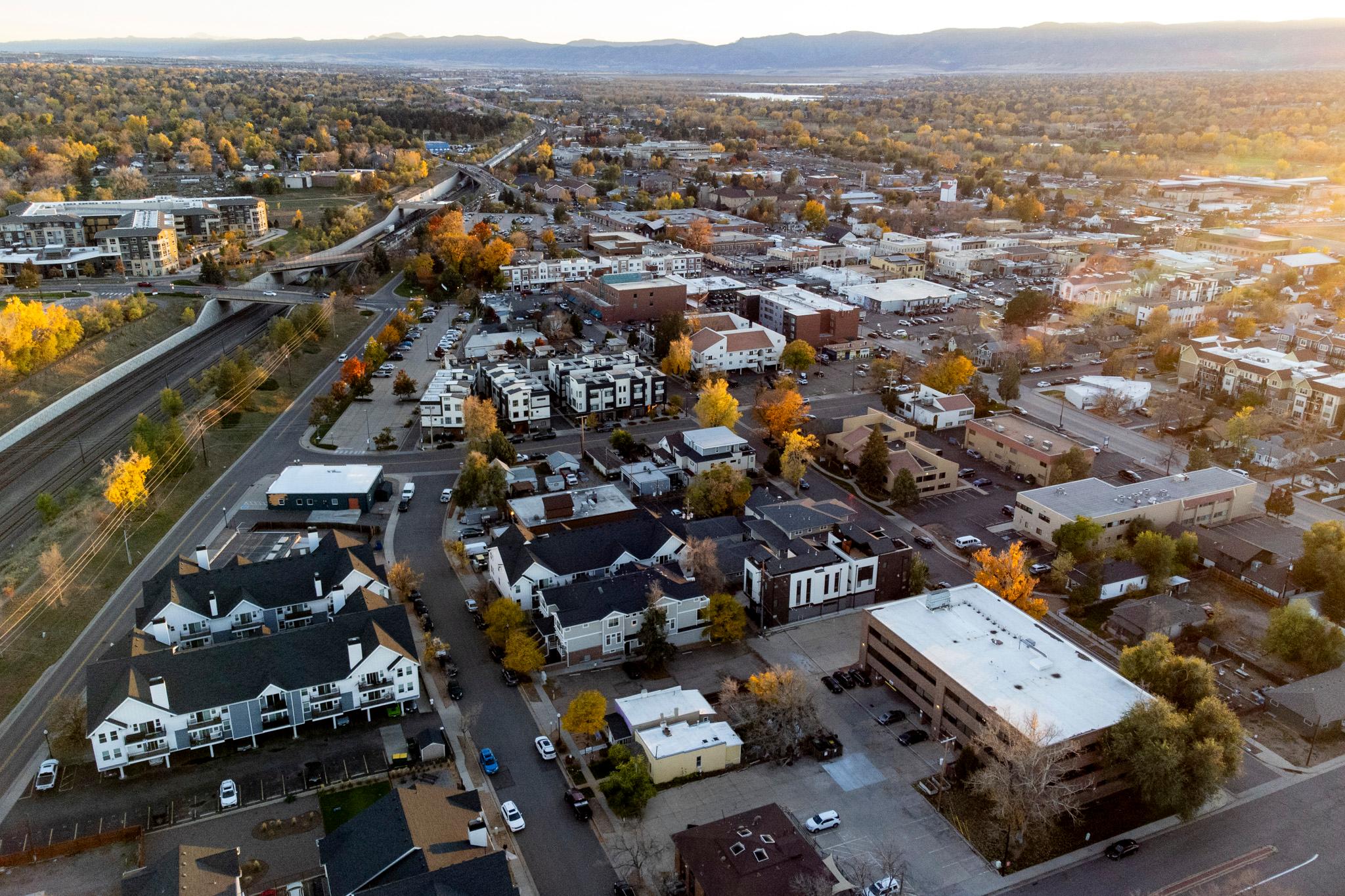By Cassis Tingley for Denverite
Four sentences have spurred a clash over development, growth and the future of Littleton in the suburb south of Denver.
Ballot Question 3A takes up just a few lines on November’s ballot. But the proposed amendment to Littleton’s City Charter has quickly become one of the city’s hottest political debates in years, stirring controversy and confusion among residents and policymakers alike.
The referendum is led by the nonprofit Rooted in Littleton and aims to freeze the city’s zoning rules, making it much tougher to change how land can be developed and used. Organizers say their goal is to preserve the town’s character by preventing developers from buying up land and “imposing” development on Littleton residents.
Another nonprofit, Vibrant Littleton, has led opposition efforts. Its members argue 3A goes much too far and would hamper the city’s ability to adapt to future housing needs.
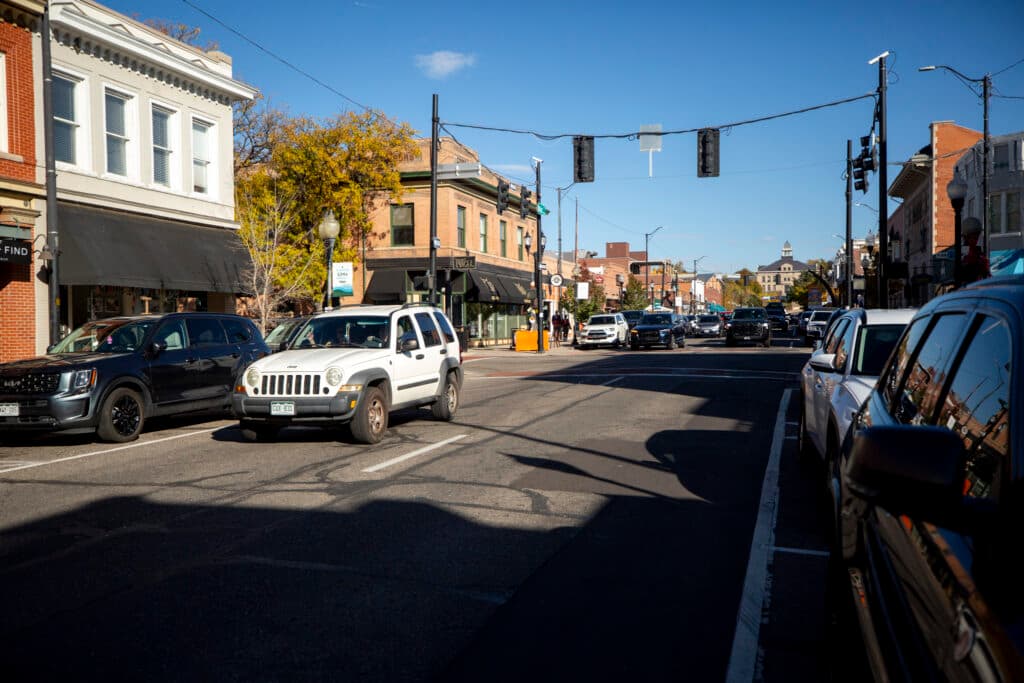
Even the city of Littleton itself got involved, asking a court to review the amendment for a potential conflict with state law before dropping the case earlier this month. The measure has also divided neighbors, online and in person — a recent public meeting drew heated discussion amid jeers and accusations of disinformation.
“It’s really disheartening,” said Katie McReynolds, who opposes the measure and said arguments have gotten harshly personal. “We want to keep the housing conversations going.”
If Amendment 3A passes, it would enshrine Littleton zoning law as of Jan. 1, 2025 into the city charter. Any large-scale land-use changes would have to go before Littleton voters instead of through Littleton City Council, though individual property owners could still ask council to rezone their own lots.
One of the most important effects: It would be more difficult for the city to allow denser development in new areas. And it would also roll back where accessory dwelling units (ADUs) can be built in Littleton.
Rooted members say they don’t trust the council to handle zoning after they tried to pass Ordinance 31 last winter, which would have expanded the areas where duplexes and multiplexes are permitted. Rooted organizer Joe Whitney described the council’s process as “covert” and “sneaky,” saying residents didn’t know the ordinance would affect zoning — something that city officials deny.
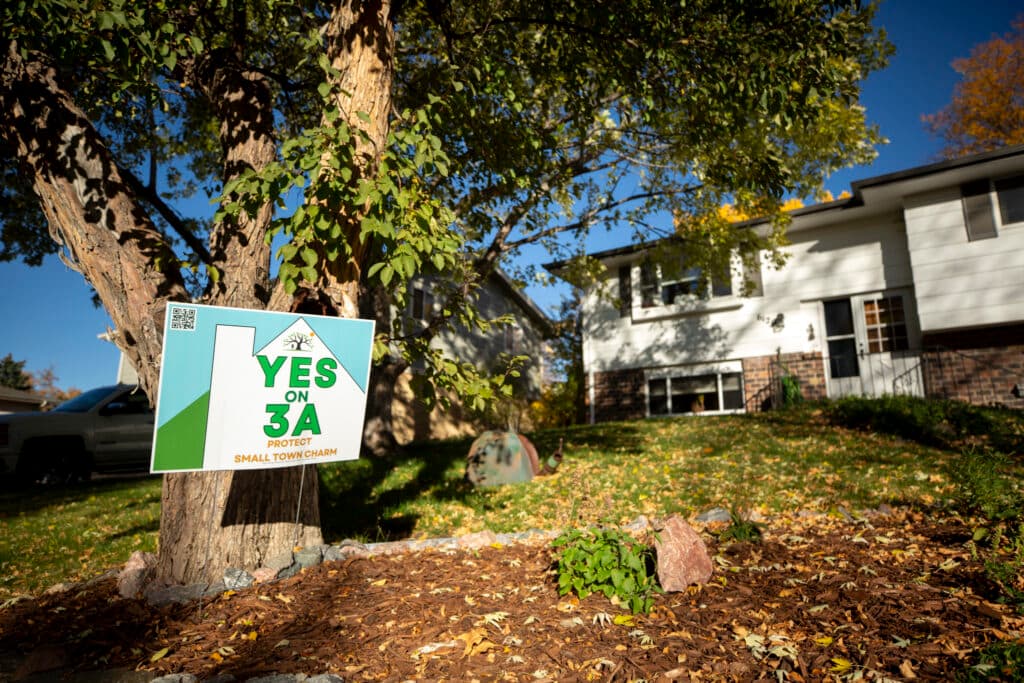
“It seemed like the only way we could slow this bus down was to put something on the charter that gives us at least two years protection to kind of sit down and have dialogue with people about what a good solution is,” Whitney said.
Though the city council dropped the original multifamily proposal due to public pushback, the incident prompted some residents to found Rooted in Littleton. The fight over Amendment 3A was on.
How it works
Under 3A, duplexes would continue to only be allowed in Multi-Family Residential (MFR) neighborhoods and, with a permit, Small Lot Residential (SLR) neighborhoods, in Neighborhood Commercial (NC) and Corridor Mixed-use (CM) areas, and parts of downtown.
Multiplexes would continue to be permitted in CM areas, MFR neighborhoods, and parts of downtown.
- You can find a map of Littleton’s zoning districts here.
Detached accessory dwelling units (ADUs) are currently allowed everywhere in Littleton except in the area surrounding Main St. per last year’s state mandate. But under 3A, they would revert to only being allowed on properties backing up to alleyways.
The measure also would require the city to notify residents in the event of zoning changes, though the city council implemented a similar change independently last month.
Littleton’s past (and future)
Located just south of Denver, Littleton is a city of 45,000 that has long attracted folks looking for a small-town vibe outside the Mile High City. It has a network of nature trails and lots of open space, a Main Street with shops and restaurants, and a relatively high number of families.
Preserving Littleton’s “small-town charm” has become central to the debate about 3A.
“It's a beautiful place. People love it here and we want it to be around for the next generation too, not just, ‘Let's go do what we want with it now,’” Whitney said. “Theoretically, [3A] is forever, just like an amendment on the U.S. Constitution is forever, unless people decide they don't want it and then they vote it down and do something else. The purpose is, ‘Let's have constructive dialogue.’”
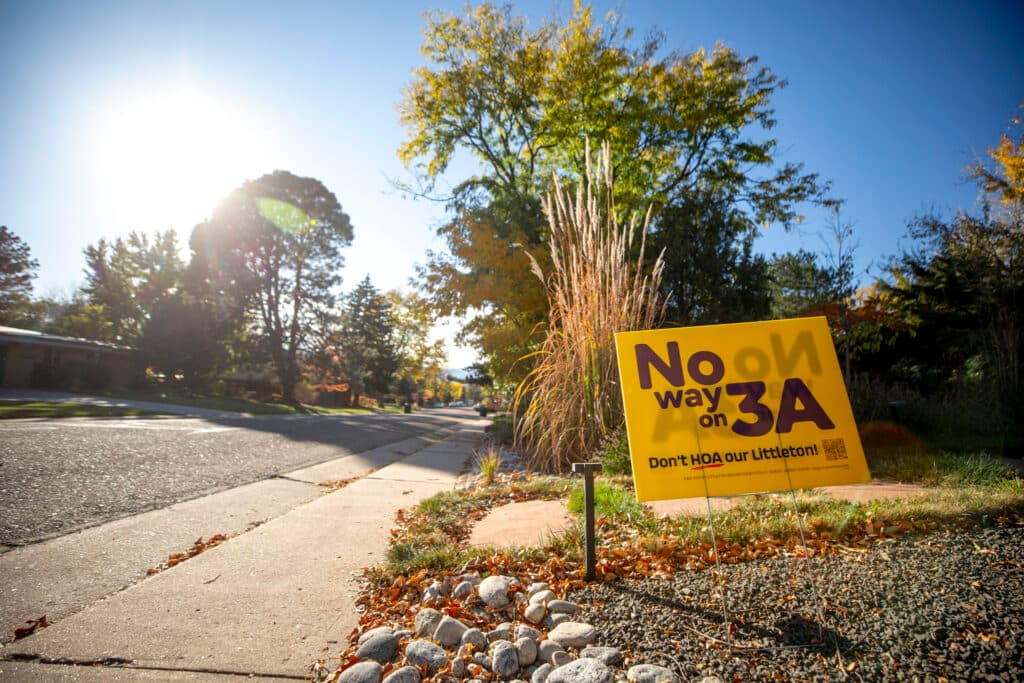
Opponents of 3A say it would endanger the town’s family-friendly community. Littleton has comparatively more families than Denver, though its population skews older — and the number of families is quickly declining, which critics blame on a lack of housing.
Littleton’s median house sale price has grown from about $370,000 in 2016 to more than $620,000 today. Rent has gone from an average of $1,303 to $2,053 per month. The town’s prices are among the highest in the Denver metro.
“The most important part of Littleton is seeing all these families walking to their neighborhood schools and that community that we have,” McReynolds said. “That’s going to go away if we continue on this projection of not attracting and retaining families, which we need to do with housing options.”
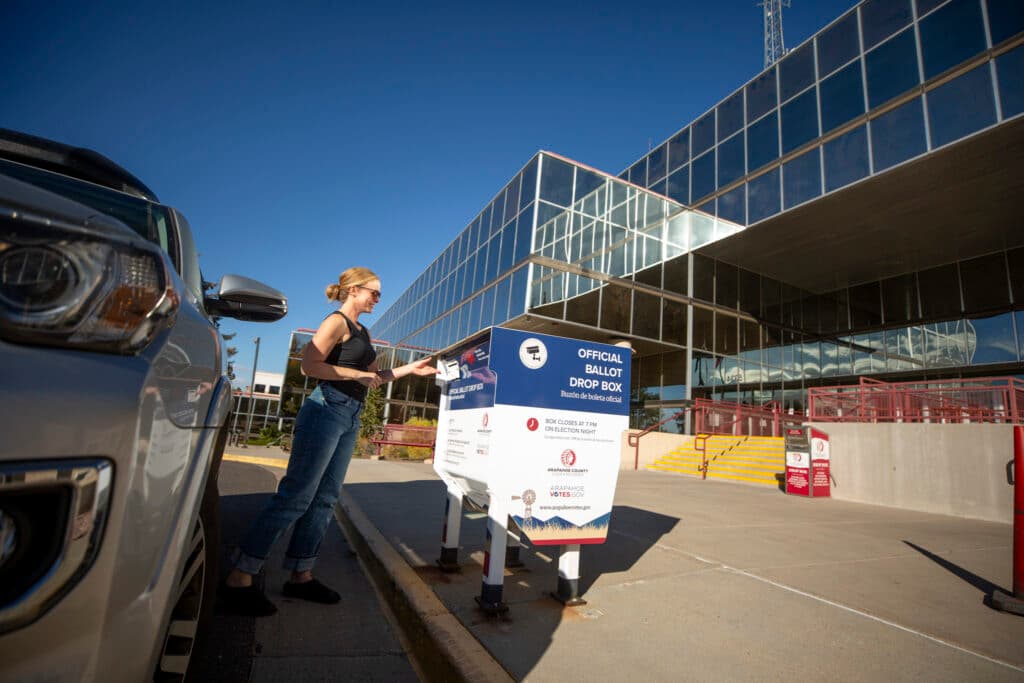
Spencer Hanks, an organizer with Vibrant Littleton, said Littleton is now much more closely intertwined with the rest of the Denver metro whether residents like it or not.
“We recognize it as a complex issue,” Hanks said. “We recognize that there's many avenues which we could take, but codifying zoning within a city charter [is] extremely restrictive and time-stamped and really shuts down all conversation and most of our ability to even begin to tackle something like affordable housing.”
The measure could have a big impact on ADUs.
The measure has some residents wondering what will happen to their own properties.
Last year, state lawmakers passed a measure requiring major cities to allow residents to build detached ADUs on their land.
In June, Littleton made that change, allowing ADUs across much more of the city. McReynolds made plans to convert her standalone garage into a home for her parents, who also live in the neighborhood and are in their 70s.
“I was really excited when all the accessory dwelling unit restrictions got lifted,” McReynolds said. “Taking care of my family and caring for my parents and giving them that dignity of old age and just aging in place, [3A] would take that away.”
When McReynolds heard about 3A, she asked the city attorney’s office what it would mean for her proposal. They informed her that if 3A passes, her detached ADU would no longer be allowed. An individual property owner could still ask the city council to rezone their specific land to allow an ADU, but that’s an expensive, lengthy and uncertain process.
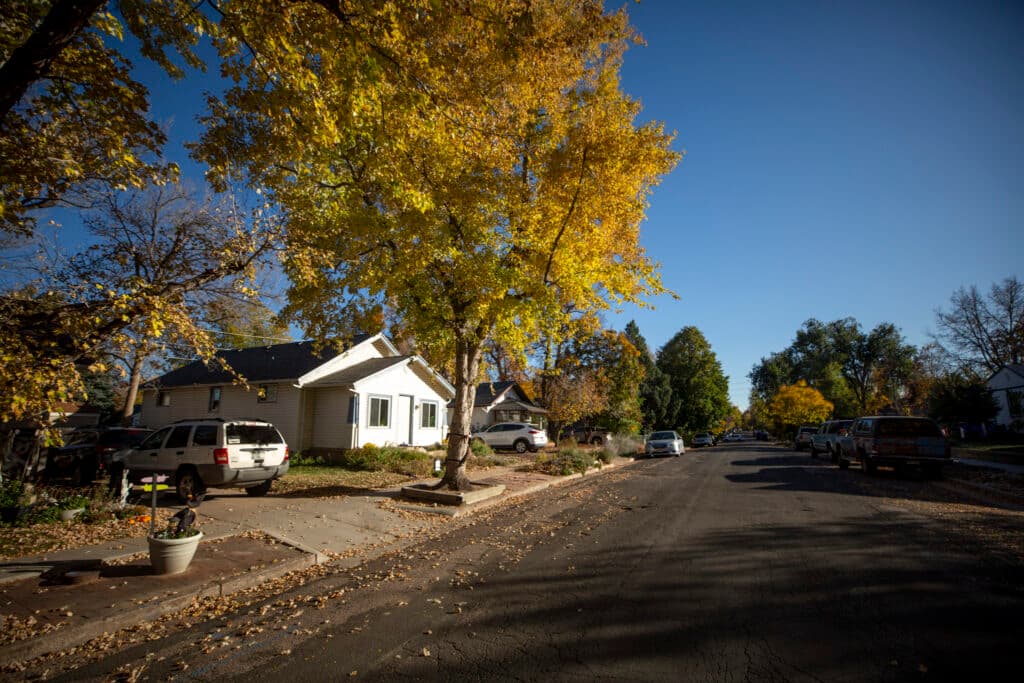
Rooted organizers have pushed back. At the House District 38 meeting earlier this month, Harris told the crowd that ADUs “aren’t affected by this 3A.” Any claim that they would be restricted was a “misinterpretation” of the amendment, he said.
Harris adjusted his tone during the Q&A, telling the audience 3A “certainly was never intended to affect any ADUs.”. “If it passes, I will talk with Reid Betzing, the city attorney, the next day about how he should interpret the city's charter in that ADUs should not be affected.”
But making those changes likely wouldn’t be so simple, and McReynolds felt the 3A advocates were misleading the public by understating the impact on ADUs. Whitney declined to comment on Harris’ speech at the meeting, saying he had not listened to the recording.
If 3A passes, city zoning rules — including those concerning ADUs — could not be changed without an election. That could happen during a regularly scheduled election or in a special election, which cost Littleton $165,000 in 2023.
The change could also come with broader effects. If Littleton widely restricts ADUs, it could put the city at odds with state law — and the state has threatened to strip funding from cities that don’t comply.
Whitney emphasized that Rooted in Littleton supports detached ADUs. He said the organization had met with the city manager and attorney to discuss the city’s interpretation of 3A in the context of ADUs, but to no avail. He also said Rooted was not invited to the city’s study sessions on ADUs.
City spokesperson Jessica Bixenman confirmed that Rooted representatives met with the city manager and attorney on Jun. 5 and that 3A would freeze all Littleton land-use policy as of Jan. 1, 2025, including ADUs. She also noted that city study sessions are open to the public.

“The City Manager communicated to [Rooted] representatives that if a charter amendment was the only acceptable path to their desired land use policy outcomes, staff did not believe there was majority Council support for any path forward that would place zoning in the charter, since zoning is classically and fundamentally a city council responsibility,” Bixenman said in an email.
3A won’t be the only thing on the ballot. Littleton voters will decide whether to re-elect Mayor Kyle Schlacter and at-large Councilmember Joel Zink.
Along with races for two open seats, the results could change the majority of the city council — the leaders who will have to lead the town forward whether 3A passes or fails.
Ballots have already been mailed. Polls close at 7 p.m. on Tuesday, Nov. 4.

